Your Cart is Empty
Free shipping on Orders $79+
Free shipping on Orders $79+
Explore

10 Easy Ways to Naturally Improve Digestion
July 16, 2020 5 min read
It's common to experience occasional digestive issues, such as an upset stomach, heartburn, nausea, gas, constipation, or diarrhea.
But if you experience these symptoms on a frequent basis, they can be very disruptive to your daily life. Nobody's perfect. Chances are, you could benefit from some minor changes to your diet that would directly benefit your digestive system.
The good news is that some relatively minor lifestyle and diet modifications can significantly improve your gut health.
Our holistic nutritionist, Annie Vonheim, wanted to share her top 10 tips for naturally improving digestion and gut health:
1. Eat Unprocessed, Unrefined Foods
We harp on this a lot here at Smart Pressed Juice, but we have good reasons for it. A typical Western diet - meaning a diet that's packed with saturated fats, refined carbs, and food additives - isproven to increase your risk of experiencing digestive disorders.
This is because common food additives, like glucose and salt, are known to increase inflammation in the gut and can even lead to a leaky gut.
Trans fats and artificial sweeteners are also strongly linked to digestive issues like ulcerative colitis and an increase in harmful gut bacteria. The bottom line is: If your diet is centered on processed foods, you're much more likely to experience a wide variety of digestive problems.
Overwhelming evidence shows that a nutritious, whole foods diet will shield the body from a variety of digestive diseases and other issues. If you want to naturally improve your digestion, limiting your intake of processed foods is the first step.
2. Water - Lots of It
Did you know that constipation is a result of low water intake? We recommend drinking at least 60 ounces of water or other non-caffeinated fluids each day. Depending on the climate where you live and your exercise routine, you may need to drink even more.
If you're frowning at the thought of drinking 60 ounces of water each day, try mixing in some herbal teas, seltzer water, or other healthy non-caffeinated options.
Additionally, you can eat more fruits and veggies that contain plenty of water. Celery, tomatoes, cucumber, melons, strawberries, zucchini, and peaches are all great choices.
3. Practice Self-Care
Nothing good comes from being stressed out. Even your digestive system isn't safe. Stress has been known to result in diarrhea, stomach ulcers, and even IBS.
Why does this happen? When your body is stressed, it's in "fight or flight" mode and thinks there's no time to rest or digest food. When your body is stressed out, much of your energy and blood are focused elsewhere and the digestive system suffers.
To remedy these stress-related problems, you should focus on meditation or other relaxing activities.
If self-care is something you struggle with, check out our blog:4 Self-Care Practices that Help Your Stress and Immunity Problems
4. Plenty of Fiber
If you're a frequent reader of our blog, then you should know that fiber is necessary for proper digestion.
There are two main types of fiber: soluble fiber and insoluble fiber. Soluble fiber retains water and is necessary for adding bulk to your stool. The nicest way of describing insoluble fiber is to compare it to a power washer; it keeps your digestive tract clean and makes sure everything keeps moving.
To learn more about how fiber helps with digestion - and to learn some great sources of fiber - check out our blog:The Reason Why Most Fibers Fall Short.
5. Include Healthy Fats
Believe it or not, good digestion does require getting enough fats in your diet. We often think foods with fat in them are automatically bad, but fat is part of what helps you feel full after eating. Plus, fats are often helpful for proper nutrient absorption.
The fats to look for are omega-3 fatty acids. These fats are known to reduce the risk of developing common inflammatory bowel diseases. To get your omega-3 fatty acids, try chia seeds, nuts, flaxseeds, and fatty fish like salmon.
6. Slow it Down
You've probably heard this one before, but there's a lot of truth to it. It's very easy to eat too much too fast. If you don't make a point to eat slow, you can give yourself gas, indigestion, and bloating.
Take the time to pay attention to your eating process and your meal. Mindful eating can even be beneficial to those who already have IBS, ulcerative colitis, and other digestive issues.
7. Chew More
This might sound silly at first, but digestion begins when you start chewing your food. Chewing your food into smaller bits makes it easier for the enzymes in your stomach and digestive tract to break it down further.
Failing to properly chew your food is known to limit nutrient absorption during the digestive process. When your meals are properly chewed, your stomach doesn't have to work as hard before passing responsibility to your small intestine.
Chewing your food properly will help reduce heartburn, indigestion, and even stress!
8. Curb Your Bad Habits
If you have any bad habits that are impacting your health, you're probably already aware of them. Eating late at night, smoking, or even drinking too much alcohol can be responsible for your digestive issues.
For example, smoking vastly increases your chances of developing acid reflux. Alcohol increases the production of acid in your stomach, which can also lead to acid reflux, heartburn, and even ulcers.
Late-night eating might not sound as bad by comparison, but eating before bed can lead to indigestion and heartburn.
Fixing these bad habits definitely isn’t easy, but it could be the key to better health and digestion.
9. Probiotics and Prebiotics
You may have read last week’s blog onprebiotics, probiotics, and postbiotics. If so, you’ll know they can be the key to a healthier digestive tract by introducing more "healthy" bacteria to your gut and minimizing "bad" bacteria.
These healthy bacteria are great for digestion because they can break down indigestible fibers that may otherwise give you gas or cause bloating.
10. Try Smart Pressed Juice
Smart Pressed Juice is also great for digestion. Our line of award-winning organic juices is perfect for anyone embarking on a journey to better digestion.
As we covered above, you’ll need plenty of whole foods like fruits and vegetables, fiber, and liquids to get to feeling right. That’s why our juices are perfect for the healthier lifestyle you’re trying to build.
What's better than getting your daily dose of vegetables in a single tasty and healthy smoothie? OurOrganic Pressed Greens is like enjoying an entire organic farmer's market in your glass. Packed with over 20 superfoods and ingredients for optimal health, these greens are exactly what you need if you're constantly on the go.
There's a science behind what we do. Not only are ourOrganic Pressed Greens nutritionist-formulated, but they're also packed with delicious hints of pineapple, apple, carrots, and citrus to ensure you enjoy what you're drinking.
For more SMART lifestyle tips like this, visit www.smartpressedjuice.com and follow us on Instagram and Twitter, or like us on Facebook. You can also visit our Amazon store to stock up on our delicious juices.
Statements made on this website have not been evaluated by the U.S. Food and Drug Administration. Information provided by this website or this company is not a substitute for direct, individual medical treatment or advice. It is the responsibility of you and your healthcare providers to make all decisions regarding your health. We recommend that you consult with your healthcare providers regarding the diagnosis and treatment of any disease or condition. Products sold on this website are not intended to diagnose, treat, cure, or prevent any disease.
{"themeColor":"#574CD5","iconColor":"#574CD5","showLogo":true,"topBottomPosition":10,"rightLeftPosition":10,"iconSize":"small","iconCustomSize":64,"position":"bottom-left"}

